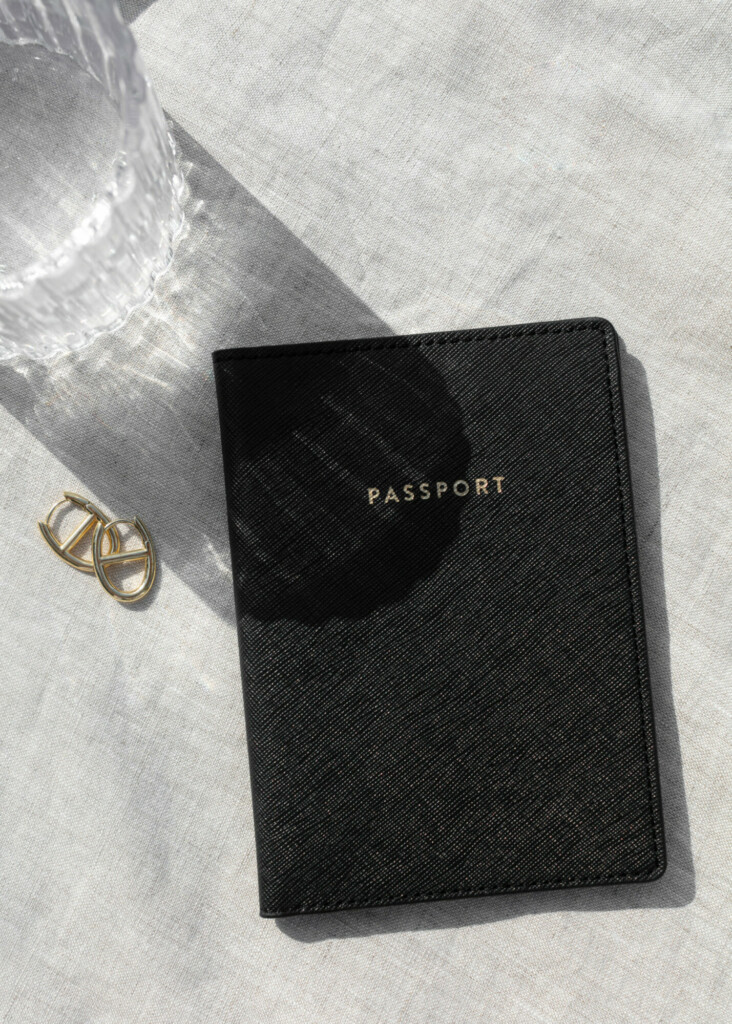Say goodbye to half-hearted breaks! Discover how to master the art of taking a real vacation that truly rejuvenates your mind and spirit.

The other day, I sent an email to a friend at work and received a unique out-of-office email reply. Her automated message said “I’m ROOF”, and outlined several people who would be good contacts to reach out to in her absence.
What the heck does “ROOF” stand for you ask? Instead of just “Out of the Office”, it meant I’m “REALLY Out of Office”! 😊
This was refreshing to see because we often SAY we are on vacation but struggle to draw a real boundary around taking real vacation time. This no-vacation culture can be so extreme that PTO is often translated as “Part-time off” or “Partial time off.”
Full disclosure: Outside of traveling to a location that has no wi-fi, I definitely haven’t mastered the art of unplugging on every vacation. However, I’m planning a trip to visit my daughter in London while she’s studying abroad and my goal is to be ROOF!
Why Vacation is Important for You – AND Your Business
According to a recent survey published on Glassdoor, 54% of professionals struggle to disconnect from work during time off. Most reported either feeling incapable of completely detaching from work responsibilities while on paid time off, or doubtful that it was obtainable.
We all know why vacations are important. The mental, physical and emotional health benefits have been documented thoroughly. Vacations recalibrate our focus and motivation, reducing burnout and increasing productivity.
And let’s not forget our workplace creativity. According to this article from Harvard Business Review, Lin-Manuel Miranda came up with the idea for Hamilton while he was on vacation. “It’s no accident that the best idea I’ve ever had in my life came to me on vacation. The moment my brain got a moment’s rest, Hamilton walked into it.”
Everyone agrees that taking regular breaks is the key to creating a more sustainable workplace with healthier, happier employees.
So Why Don’t We Unplug More?
The internet and social media are chock full of stories and explanations of why we all struggle with taking a break—at least in the USA.
We live in a culture of being continually “on.” For those in leadership positions, the fear of delegating can be real.
I know that if I don’t plan far ahead in advance, I won’t feel like there’s coverage to keep things moving in my absence.
Ultimately, a company culture that supports real time off is the best way to also support employee happiness. But in a report from Pew Research Center, of over 5,000 adults, 46% of employees don’t even take all the paid time off they were offered!
The bottom line is that we all need to do a better job of taking that much-needed PTO and then truly enjoying it to the fullest.
How to ACTUALLY Unplug and Enjoy Your Well-Deserved Time Off
With all this in mind, here are some practical tips to increase the chances of enjoying your next break.
 Step 1: Plan your Vacations well in Advance
Step 1: Plan your Vacations well in Advance
Put those dates on your calendar. It’s much harder to step away from work if it happens on the fly. I like to plan for the year ahead in January, putting the dates on the family calendar so everyone is on the same page.
Step 2: Pre-Communication with Your Team
One month before your vacation (could even be earlier), discuss with your team and managers about your planned time off. This allows enough runway to put coverage plans in place – possibly deferring critical deadlines or giving someone on the team an opportunity to be your point person in your absence. Set expectations about availability and work responsibilities during your vacation. Remember, you are also modeling what it looks like to have a healthy work/life balance!
Step 3: Set up an Effective Out-of-Office Reply
Make sure your automated response includes suggestions for who can help with what, and include their contact info.
If you do plan to check email on vacation, include clear expectations regarding response times. ie: “I will be checking email on Tuesdays and Thursdays.”
Not sure what to write? Here is a downloadable ROOF template to use as a starting point.
Step 4: When on Vacation, Follow Your Own Rules
Now that you’ve taken the time to set this up, hold yourself accountable! If it’s harder to unplug than you thought, consider leaving your phone in your hotel room, turning on an away message, or temporarily uninstalling work apps or emails and notifications on your devices. This podcast from the American Psychological Foundation has some great strategies for how to make the most of your vacation.
There are some useful tools and apps that can help manage work notifications and restrict access to work-related communication.
Freedom allows users to block distracting websites and apps across their devices. You can also schedule focused time without interruptions from work-related messages.
Forest is a productivity app that uses gamification to help users stay focused and limit distractions. Users can set a timer to plant virtual trees, and during this time, notifications and access to selected apps are restricted. If users leave the app before the timer ends, their virtual tree dies, encouraging them to stay focused.
Bonus Tip: Returning to Work — Use AI to Help!
How do you return from vacation and not fall back into overwhelm mode? 
A friend of mine shared her genius tip for combatting the return to work blues. She had been gone on a two-week trip to India to visit family and came back to a mountain of unread emails. She let Copilot for M365 do the heavy lifting to sort through her email, using AI to sift through the chaos and point out the must-dos. Talk about a smart move! If you haven’t checked it out yet, you can try Microsoft Copilot for free here.
Final Takeaway:
There are so many scientific benefits to unplugging for our mental and physical health. The key component to making that dream a reality is to PLAN. Planning allows you to manage expectations, keep your job responsibilities flowing and gives yourself permission to take that much-needed time off.
Taking steps to enhance your overall quality of life and job satisfaction is so worth it.
Have you managed to unplug from work during vacations? I’d love to hear any other helpful tips!
Thanks for reading,



